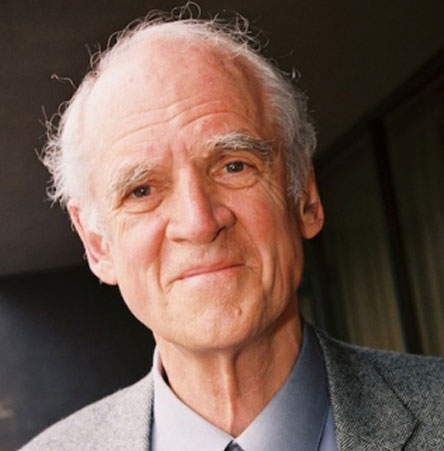
By McGill Reporter Staff
Celebrated McGill philosopher Charles Taylor has been named the first winner of the $1-million Berggruen Prize.
The prize, awarded by the California-based Berggruen Institute, will be given annually “to a thinker whose ideas are of broad significance for shaping human self-understanding and the advancement of humanity,” according to a statement from the Institute.
Taylor (BA52), now a professor emeritus, is considered one of the world’s foremost philosophers and has collected several major academic prizes in recent years, including the 2007 Templeton Prize and the prestigious Kyoto Prize in 2008, as well as the 2015 $1.5-million Kluge Prize for achievement in the study of humanity.
Influential throughout the humanities, social sciences and in public affairs, Taylor has been a leading voice for Canadian unity, while advocating for the preservation of the distinctive identity of Quebec. He co-chaired, with renowned sociologist Gérard Bouchard, the high-profile Consultation Commission on Accommodation Practices Related to Cultural Differences, the Quebec government’s response to a string of controversies surrounding the “reasonable accommodation” of religious groups.
And he is a global leader in deepening understanding among different intellectual traditions and civilizations.
“I am honoured to be selected for this prize, and the more so because the Berggruen Foundation has given itself the mission to overcome the deep mutual misunderstandings between the cultures and civilizations sharing the planet,” Taylor said in an email to The Reporter. “This is a cause that philosophers can contribute to, and that I would very much like to help further.”
Taylor’s many books, including Explanation of Behaviour (1967), Sources of the Self (1989), and A Secular Age (2007), along with his newest work, The Language Animal (2016), urge us “to see human beings as constituted not only by their biology or their personal intentions, but by their embedding in webs of meaningful relationships,” the Institute said.
The recipient of the Berggruen Prize is selected by an independent jury of prominent academics, which was chaired this year by NYU Professor Kwame Anthony Appiah.
This year’s jury included Amy Gutmann, President of the University of Pennsylvania; Amartya Sen, Nobel Laureate and Thomas W. Lamont University Professor of Economics and Philosophy at Harvard University; Leszek Borysiewicz, Vice-Chancellor of the University of Cambridge; and Michael Spence, Nobel Laureate, and William R. Berkley Professor in Economics and Business at New York University as well as Philip H. Knight Professor Emeritus of Management in the Graduate School of Business at Stanford University.
“Charles Taylor is a brilliantly appropriate recipient, because he has changed the way people all over the world think about some of the most basic questions in human life,” said Nicolas Berggruen, Chairman of the Berggruen Institute.
“Charles Taylor’s work links ethics, political philosophy, and philosophical anthropology to address central questions of public and private life,” Appiah said.
